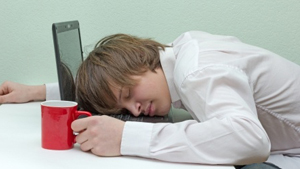SLEEP DISORDER
 There is a direct relationship between sleep apnoea and tooth wear, as the mouth is right next to the throat, where snoring and apnoea occur.
There is a direct relationship between sleep apnoea and tooth wear, as the mouth is right next to the throat, where snoring and apnoea occur.
The relationship between sleep disorders and oral health
All living organisms are governed by the principle of maximum economy. This means that, from a biological point of view, we never do anything that is not necessary and human beings devote 27 years of our life to sleeping! Nowadays we know that during sleep hormonal, metabolic, biochemical and immunological changes take place that are essential to maintain our health. During sleep our memory is consolidated, children grow, learn and develop, our immune system is strengthened to defend us against disease and cancer and our physical state is renewed, restoring our energy.
Sleep apnoea and dental health
It is estimated that there are two million people in Spain that suffer from severe sleep apnoea and most of them are still undiagnosed. If you habitually snore or you have been told you stop breathing while you sleep, you may be suffering from apnoea. If you feel tired during the day or you are sleepy, or if you have arterial hypertension or have suffered any cardiovascular, neurological or vascular disease, you probably suffer from sleep apnoea.
Apnoea consists of repeated obstruction of the throat that causes asphyxia while sleeping, leading to poor quality and non-refreshing sleep. With each episode of asphyxia the oxygen entry is hindered, which can cause arterial hypertension, and severe cardiovascular and cerebrovascular problems. Sleep apnoea is very common and affects 25% of adults and 3% of children, so any child who snores must be assessed.
The mouth and teeth are very near the throat, where snoring and apnoea occur. Therefore, a direct relationship has been demonstrated between sleep apnoea and bruxism.
Bruxism is a very common disorder in which people grind their teeth and/or clench their jaw involuntarily and repeatedly while they sleep, which causes wear in the teeth and clinical problems.
The relationship between the two disorders is so close that we must suspect sleep apnoea in all people with bruxism. Therefore, the dentist is usually the first clinician to realise that the patient is suffering from apnoea.
Mandibular devices
One of the most effective treatments for snoring and sleep apnoea, as well as bruxism, are mandibular advancement devices (MAD). MAD are small intraoral devices that are put in place for sleeping and push the mandible forward a few millimetres.
The MAD developed at the Eduardo Anitua Clinic are well tolerated and are able to considerably reduce both sleep apnoea and chronic snoring. Even in patients with apnoea who sleep with a CPAP (Continuous Positive Airway Pressure) machine, the MAD can facilitate better tolerance to the CPAP reducing the pressure necessary and, in some cases, a combined treatment with MAD and/or a CPAP machine is possible.
Insomnia
Insomnia is defined as difficulty initiating and/or maintaining sleep and/or early waking. Twenty percent of the population suffer from insomnia and the majority do not receive appropriate treatment. Patients with insomnia suffer significant consequences in their quality of life, performance at work and state of health. Nowadays, we have very effective therapies using treatment with modern cognitive-behavioral techniques and the help of new medicinal products. All patients with insomnia must be evaluated in a sleep unit and avoid self-medicating. There are more than 90 diseases related to sleep. Most of them can be treated but all of them must start with a good diagnosis. In the Sleep Unit at the Eduardo Anitua Clinic, we can help you. Consult us.